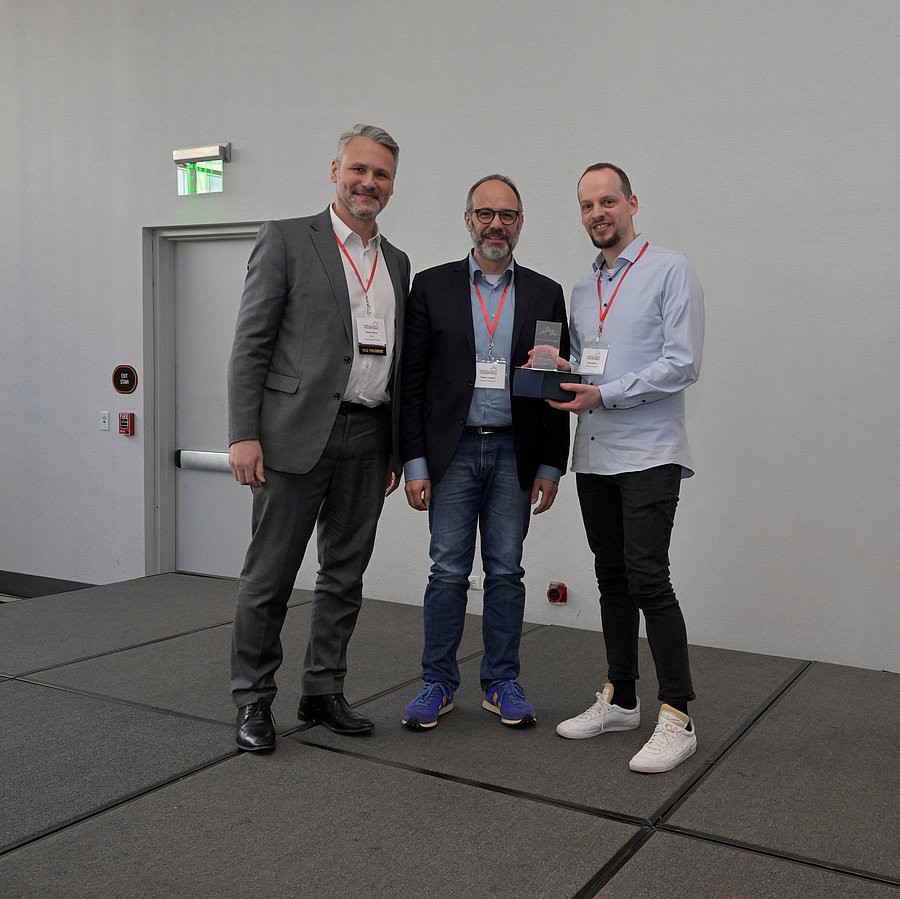Best Paper Award für Daniel Bruns, Steffen Prior und Tobias Langner auf der AAA 2023 in Denver

Prof. Dr. Martin Eisend, Prof. Dr. Tobias Langner und Jun.-Prof. Dr. Daniel Bruns (v.l.n.r.) Foto: American Academy of Advertising
Die Forscher des Marketinglehrstuhls Daniel Bruns, Steffen Prior und Tobias Langner wurden auf der diesjährigen Konferenz der American Academy of Advertising (AAA) in Denver für ihr Paper „Influencer Marketing Effectiveness: Automated Measures of User’s Social Media Engagement toward Influencer Posts as Indicators of Attitudinal and Behavioral Outcomes“ mit dem Best Conference Paper Award ausgezeichnet. Überreicht wurde der Award von Martin Eisend, dem Vice President der AAA.
Die Konferenz der AAA ist die bedeutendste Werbeforschungskonferenz weltweit und findet jährlich an wechselnden Ausrichtungsorten statt.
Influencer Marketing Effectiveness: Automated Measures of User’s Social Media Engagement toward Influencer Posts as Indicators of Attitudinal and Behavioral Outcomes - Abstract:
Measuring the success of influencer campaigns is considered to be the most important challenge of influencer marketing, according to recent surveys among practitioners. The present paper provides a comparison of different approaches that measure campaign success based on freely accessible data: engagement rates (like-follower-ratio, LFR, and comment-follower-ratio, CFR) as well as sentiment of user comments analyzed using lexicon-based approaches (LIWC and VADER) and a machine learning Naïve Bayes (NB) sentiment classifier. We examine the convergent, discriminant, and predictive validity of these metrics. Linear mixed-effects regressions reveal that only the NB classifier and LIWC converge positively with a measure of attitude toward the post. CFR correlates negatively with post attitude, indicating that lower overall attitudes toward an influencer marketing post yield more user comments. Predictive validity with regard to brand attitude, purchase intention, price premium, and positive word of mouth was found only for the NB classifier and partially for VADER. These findings suggest that engagement rates and lexical approaches provide only limited validity to indicate post attitude or to predict the attitudinal and behavioral outcome variables. The machine learning approach of the NB classifier presented here can serve as a valuable performance indicator and helpful controlling tool for marketers.

